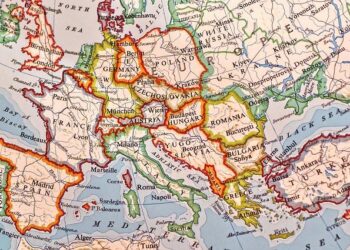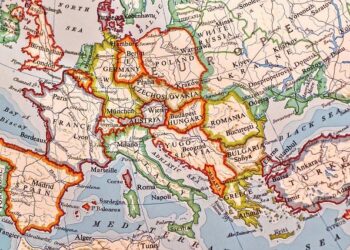EU Tensions Escalate: Slovak PM Fico Confronts German Politician Merz Over Policies on Hungary and Slovakia
The recent public exchange between Slovak Prime Minister Robert Fico and German politician Friedrich Merz has spotlighted growing discord within the European Union regarding its stance on Hungary and Slovakia. Fico’s sharp rebuttal to Merz’s advocacy for tougher EU sanctions against these nations highlights deepening divisions among member states over democratic standards and rule-of-law enforcement. This clash not only reveals the widening gap between Central and Western Europe but also illustrates the complex challenge of balancing national sovereignty with collective EU unity.
Fico’s Defense of Sovereignty: Advocating Dialogue Over Sanctions
Responding to Friedrich Merz’s calls for stringent EU measures targeting alleged rule-of-law breaches in Hungary and Slovakia, Robert Fico criticized such demands as ‚Äúprovocative‚ÄĚ and lacking sensitivity toward each country‚Äôs unique political realities. He warned that punitive tactics risk alienating member states instead of encouraging cooperation. Instead, Fico urged a focus on respectful communication that respects national contexts while fostering mutual understanding.
Emphasizing Slovakia’s priorities amid these tensions, Fico underscored the importance of solidarity among all 27 EU members to effectively address shared challenges such as post-pandemic economic recovery, migration management, energy security amid ongoing global crises, and climate change adaptation efforts. His key principles included:
- Upholding National Autonomy: Defending each country’s right to self-determination within the broader framework of EU collaboration.
- Encouraging Transparent Dialogue: Promoting open conversations rather than confrontational approaches.
- Pursuing Joint Solutions: Prioritizing collective action on urgent issues like inflation control and sustainable development goals.
The Wider Consequences: Implications for European Unity
The dispute between Robert Fico and Friedrich Merz reflects a broader rift in perceptions about governance norms enforced by Brussels across different regions in Europe. Leaders from Central Europe frequently perceive Western-led initiatives as infringements upon their sovereignty‚ÄĒa sentiment supported by recent Eurobarometer data showing a 15% decline in trust toward EU institutions among Eastern member states since 2020.
This growing divide threatens not only bilateral relations‚ÄĒsuch as those between Germany and Slovakia‚ÄĒbut also risks weakening consensus-building essential for tackling continent-wide challenges like migration reform or budget negotiations under the Multiannual Financial Framework (MFF). If left unresolved, this tension could fuel nationalist rhetoric reminiscent of past intra-EU conflicts seen during Brexit or disagreements within groups like Visegr√°d.
- Eroding Cohesion: Divergent views may delay or fragment implementation of key policies including digital transformation initiatives aligned with the EU Digital Decade strategy.
- Heightened Regional Frictions: Intensified rhetoric risks inflaming nationalist sentiments similar to those witnessed during previous intra-EU disputes.
- Economic Vulnerabilities: Potential retaliatory measures could disrupt fragile supply chains already strained by geopolitical tensions linked to Russia-Ukraine conflict impacts on energy markets.
Diplomatic Pathways: Enhancing Cooperation Within the Union
The confrontation between Slovak PM Robert Fico and German politician Friedrich Merz exemplifies ongoing difficulties faced by the European Union in reconciling respect for national sovereignty with upholding common values. To maintain cohesion amidst diverse political cultures, future strategies should emphasize collaboration over confrontation through several key approaches:
- Create Inclusive Forums for Dialogue: Establish regular platforms where all member states can openly express concerns‚ÄĒsimilar to expanded formats used during recent Conference on the Future of Europe sessions‚ÄĒto foster mutual understanding before disputes escalate.
- Cultivate Participatory Policy Development: Ensure that policies affecting multiple countries are co-created with input from all stakeholders rather than imposed top-down; this method has proven effective in cross-border environmental projects such as Natura 2000 network expansions across Europe’s protected areas.
- Create Tailored Conflict Resolution Mechanisms: Develop mediation frameworks specifically designed for intra-EU disagreements prioritizing negotiation over sanctions‚ÄĒdrawing inspiration from successful peacebuilding models applied within Nordic cooperation agreements involving Sweden, Norway, Denmark, Finland, and Iceland.
- Civic Education & Awareness Initiatives:Aim at enhancing citizens’ understanding about how collaborative policies improve daily life; leveraging digital outreach tools can particularly engage younger demographics who show skepticism towards supranational institutions (Eurostat reports indicate rising youth disengagement trends).
Toward a Harmonized Yet Diverse European Union
The intense dialogue between Slovak Prime Minister Robert Fico and German politician Friedrich Merz encapsulates underlying tensions shaping Europe’s evolving governance landscape. While leaders from Eastern Europe emphasize safeguarding sovereign decision-making free from perceived Western dominance, their Western counterparts stress uniform adherence to democratic norms across all members.
As debates around rule-of-law compliance continue alongside pressing priorities such as economic resilience following COVID-19 recovery plans‚ÄĒthe necessity for nuanced diplomacy becomes increasingly vital. The stability of regional partnerships within Central Europe‚ÄĒand overall cohesion throughout all 27 member states‚ÄĒhinges upon fostering respectful communication channels combined with inclusive policymaking.
EU decision-makers must therefore pursue solutions accommodating diverse political realities without compromising foundational values established since accession waves began in early 2000s.
This unfolding discourse will carry significant political‚ÄĒand social‚ÄĒweight as citizens observe how their leaders reconcile differences while navigating turbulent geopolitical environments shaped by nearby conflicts including Ukraine.
Ultimately,a flexible yet united union embracing internal diversity is best equipped to confront emerging global challenges collectively while sustaining its role as an international exemplar of democracy.*















